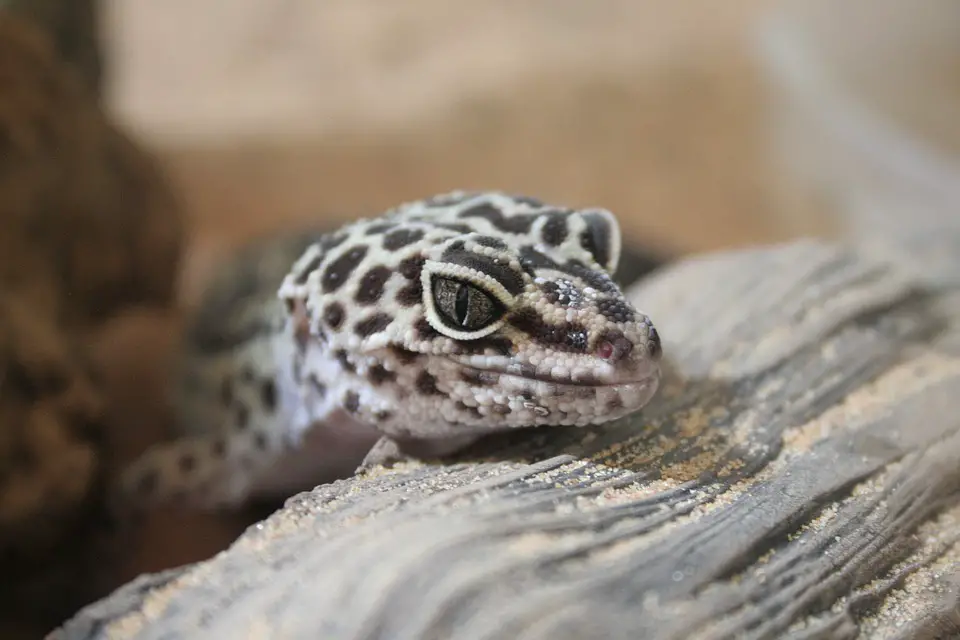As a pet owner, it is your top priority to monitor your gecko’s behavior and be in a position to point out if it is acting strangely or is healthy. In this article, you will learn how to tell leopard gecko stress signs.
Does your gecko’s yawn or shaking tell of any stress sign? What about when the gecko starts moving slowly or keeps looking up?
In this article
How to tell if a leopard gecko is stressed
Your leopard gecko will show you signs when stressed. It will be upon you as a good pet owner to pick the cues and respond appropriately.
Below are some stress indicators that will be vital in addressing your gecko’s stressor.
Stress Licking
Stress licking will be a sign of a severe condition called Mouth rot. However, you need to differentiate a regular lick from this excessive licking situation.
On regular times, a leopard gecko will readily use its tongue to sniff out the environment while in its exploration mode.
The gecko also licks its eyes to keep them clean and moist. However, if the licking is too much, there will be a reason to worry. Probably there is something stuck in the eyes that can’t come off or a possible Mouth rot condition.
Mouth rot is primarily caused by an immunity drop that is often occasioned by long-term stress. The Mouth rot condition is accompanied by excessive licking and some or all of the following symptoms.
- A Gaping mouth.
- Unexplained lack of appetite.
- Traces of mucus or puss around the Mouth.
- Willing to eat, but unable to pick up food.
Arched back
Leopard gecko body language includes an arched back. However, this is often a sign of stress when the gecko feels scared. An arched back will make the gecko look bigger to scare away any threat or avoid being handled by the owner.
Cohabitation Stress
Geckos are mostly lone rangers and don’t fancy communal living. However, most pet owners think it is wise to provide company to their geckos by havening more than one or even introducing a different type of reptile compatible with them.
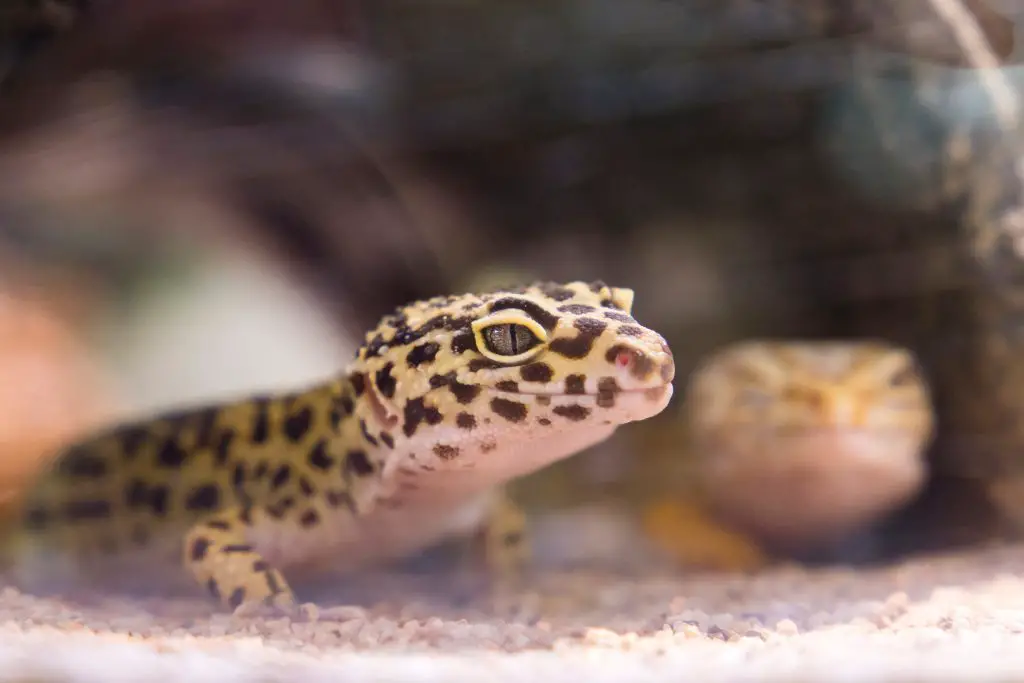
Unfortunately, geckos don’t seem to enjoy the company, especially during feeding, and often turn aggressive against each other. Repeated tension build–up during feeding often result in full-blown stress for the geckos.
Stress Waving
Geckos will naturally wave their tails periodically when courting and while pursuing prey at close range. However, if your gecko waves its tail longer than usual and with reasons not associated with the mentioned circumstances, it will often be a stress signal.
Stress waving will often be observed when the gecko feels threatened. Some of the stress can be attributed to a competitor or predator who has infringed the gecko’s domain.
However, it should be noted that stress waving can be witnessed when you have just bought a new gecko who is yet to trust you. The gecko will always perceive you as a threat until you offer reassurance through patience and not being too pushy whenever it is waving you away.
Closed Eyed
Geckos are known to be active and alert during regular times. However, if you notice your healthy gecko often close eyed when it should be up and about, then something could be wrong.
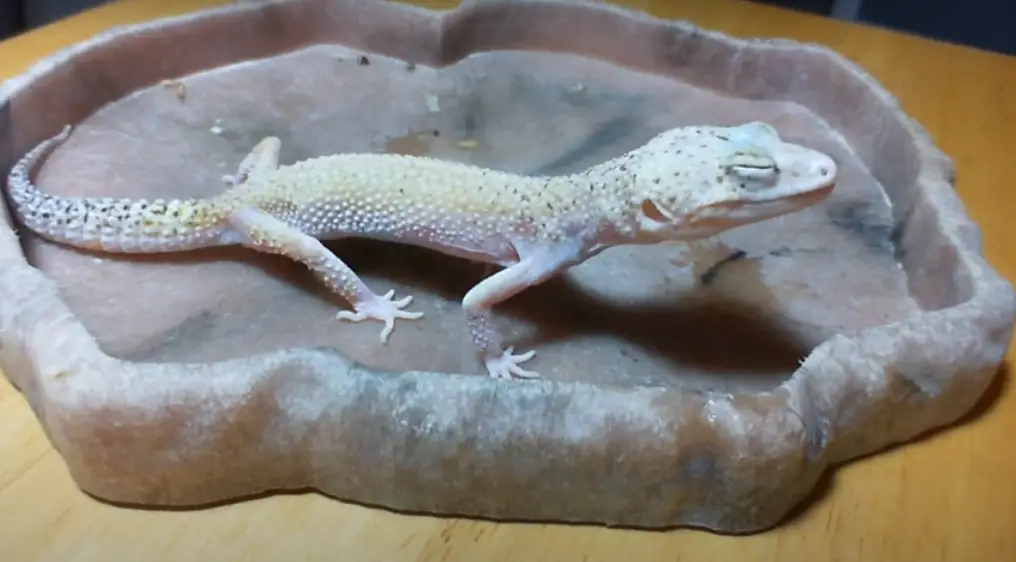
A closed-eyed gecko could be signaling stress brought about by one or a combination of the following factors;
- The lights in the gecko’s tank are too bright.
- There is no comfortable hiding place in the tank for the gecko.
- The gecko has pain in the eye. Possibly a foreign object in the eye or pain elsewhere in the body.
- There could be an illness that will require a vet’s attention.
Vocalizing
Vocalizing is one of the default communication channel for most species.
Geckos will chirp, squeak, or produce a quacking sound when under threat or bothered by something. If this happens while handling the gecko, you should retract, loosen your grip or return it to the tank.
Glass Surfing
Glass surfing will look like a dance by the gecko on the glass wall of its tank. The act should not be taken as entertainment since it may be indicating a serious concern by the gecko.
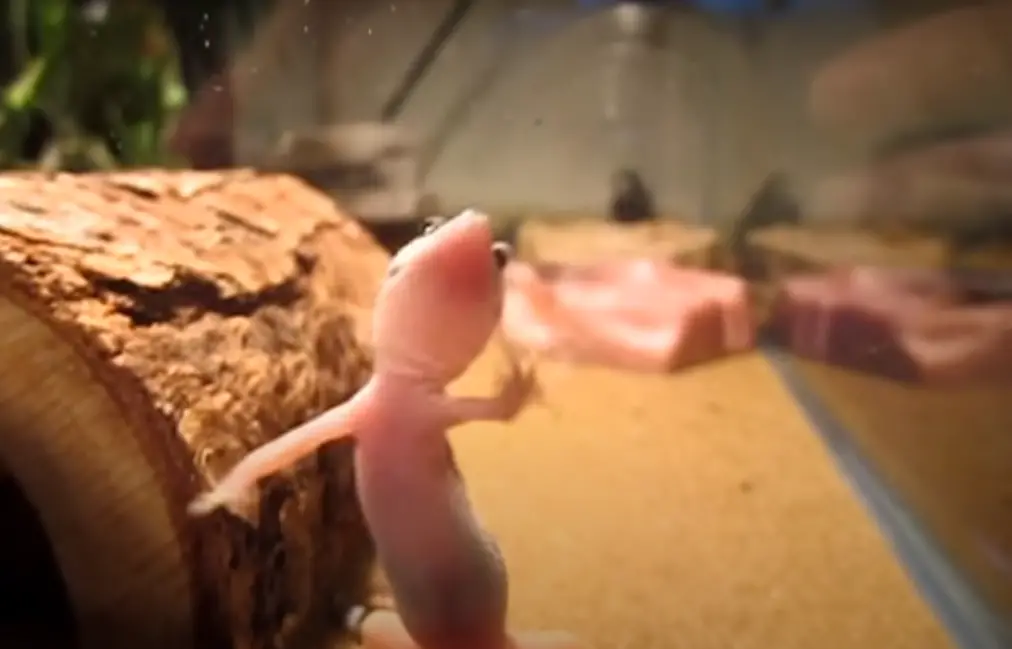
The gecko will be calling out to be taken out of an uncomfortable situation in the tank by glass surfing. Some of the reasons could be;
- Mites or other bugs in the tank
- Cohabitation stress caused by having tank mates
- Too much heat in the tank
- The tank just too small
- The tank is too dull for the gecko
As a gecko owner, you will be required to look out for the above triggers.
Not Having Regular Bowel Movements
If you notice that your gecko is taking longer than usual to poop, there could be one or more reasons for it. You will need to quickly assess the situation since if the gecko is not pooping, then it is not eating. Delay will undoubtedly be fatal.
A gecko having irregular bowel movements may be pointing out to the following;
- Its habitat might have been modified. A gecko will always like to poop at a specific location in the tank. It any adjustment is made to the extent of losing its spot, the gecko will find it stressful getting anew spot.
- Your gecko could not be getting enough water.
- Your gecko could be having a deadly parasite in its gut.
- The temperature in the tank could be too low for your gecko.
- Your gecko could have eaten a loose substance like sand or wood chipping in the tank.
- Your gecko could have eaten a large insect that might have led to constipation.
Excessive Hiding
A new gecko, in its normal behavior, will keep hiding up to seven weeks. After this period, the gecko is expected to have created rapport with you and comfortable around you.
An extended period could be a sign of something wrong in your gecko’s environment. The following could be the causative reason;
- It could be too hot for the gecko in the tank. The gecko will be looking to stay away from the hot place to a cooler spot in hiding. Check the areas under the heat map to be sure it is not too hot.
- On the other side, your gecko’s tank may be too cold. Your gecko will hide, seeking warmer spots to conserve energy.
- Metabolic Bone Disease (MBD) could be the reason why your gecko is hiding. MBD is a dangerous condition that causes difficulty in moving and occurs due to a lack of calcium and vitamin D3. Be sure to check if your gecko’s limbs and spine look normal.
Reasons for stress in a leopard gecko
Wrong temperatures in the tank
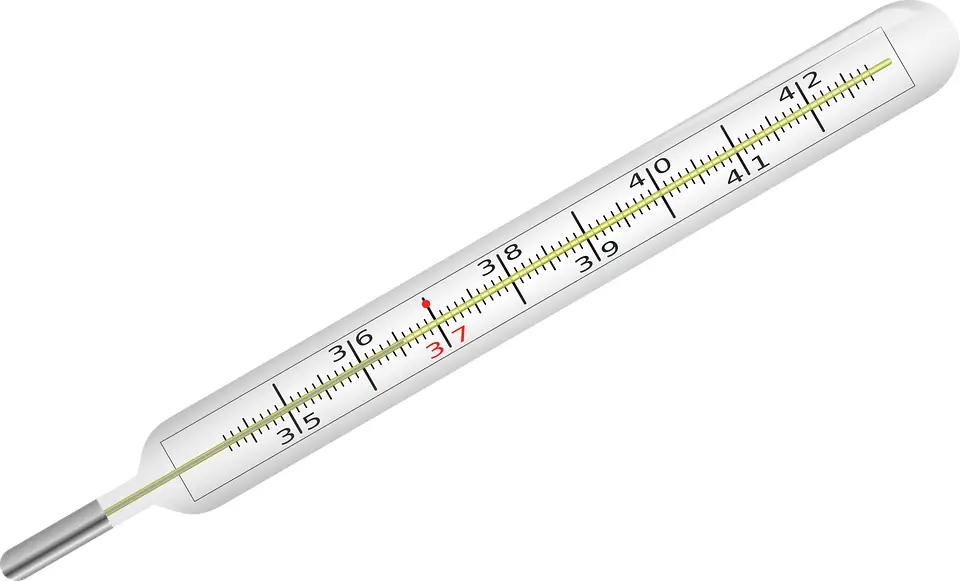
Optimal temperatures are necessary to ensure the gecko can regulate its boy temperature and stay comfortable. Too high temperature leads to dehydration and organs failure, while cold temperatures cause digestive problems and respiratory infections.
Your tank’s hot spot is recommended to be 88F to 92F while the cold side ranges between 73F to 76F. It is mandatory to have a temperature gradient.
Breeding or puberty behaviors
Like in humans, the teenage gecko period gets a little awkward at about 8 months of age. Gecko becomes skittish or even aggressive, trying glass surfing to escape or even quit eating. The behavior will, however, end when they become adults at about 12 months.
During the breeding period, male geckos will show interest in mating by fighting to be close to female geckos. On the other hand, female geckos will get moody, quit eating, and start digging before laying eggs.
Feeding issues
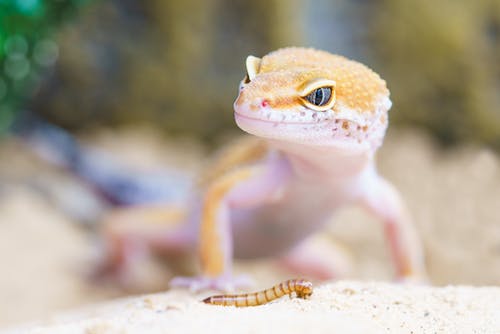
It is stressing or even hazardous to the geckos when you feed them with insects too giant for them. The rule of thumb is never providing any insect larger than the space between your gecko’s eyes.
- Too big insects can cause the gecko to choke or even get paralyzed.
- Some insects like crickets and even super worms can bite the geckos.
- Avoid overfeeding the geckos. You can time them for 15 minutes then stop the feeding.
Your new leopard gecko isn’t used to you and is scared.
New geckos, both young and adult, will need time to get used to you and their habitat. It usually takes between 3-6 weeks for the gecko to be fully used to you and their new home.
This period could also be longer depending on the personality of the gecko. Your main job here is to be friendly and patient.
Sickness
Sickness is one of the most apparent reasons why your gecko will be stressed. This is so because its movement, eating, smell, or even ability to socialize will often be compromised.
Common behaviors to look out for in the event of sickness include;
- Food regurgitation
- Irregular pooping
- Failure to eat at regular intervals even when presented food
- Losing weight notably
- Hiding frequently with no apparent reason
- Limping while moving about in the tank
Wrong tank size and persistent environment change
A gecko will find it so stressful to stay in a tank that is too small for them.
While it is possible to start a baby gecko in a 10-gallon tank, it is not the best decision due to the following;
- A gecko will only be a baby up to 5 months. Not only will it be expensive to buy yet another tank, changing the gecko’s habitat will, on its own, be a stressor.
- A gecko requires a temperature gradient for optimal living. This means in the same tank; you must get a spot with low temperature and another with high temperature. Achieving this in a 10-gallon tank is almost impossible.
Loud noises around the terrarium
The noise around your gecko’s habitat can lead to severe stress for your gecko. The source of this noise can be from any type of interruptions, including;
- Shouting
- Children playing ground
- Loud TV
- Barking dog
- Too much foot traffic is always going by.
To help you mitigate the noise stressor to your geckos, you should consider the following recommendation.
- Set up your gecko’s tank in a quiet place. Avoid living rooms, kitchens, family rooms, or similar high traffic places.
- When tending to the tank for care and cleaning, do so calmly and quietly.
- When showing off your gecko to friends, advise them against noise. Be more particular to children who usually get excited about animals against yelling and shouting as they approach the habitat.
- Move any noise emitting devices like speakers to a different location.
Shedding
Geckos shed naturally after every 1, 2 weeks, or even once a month, depending on their age. However, the gecko may tend to avoid eating, hide, get moody, and even dislike any form of handling during this period.
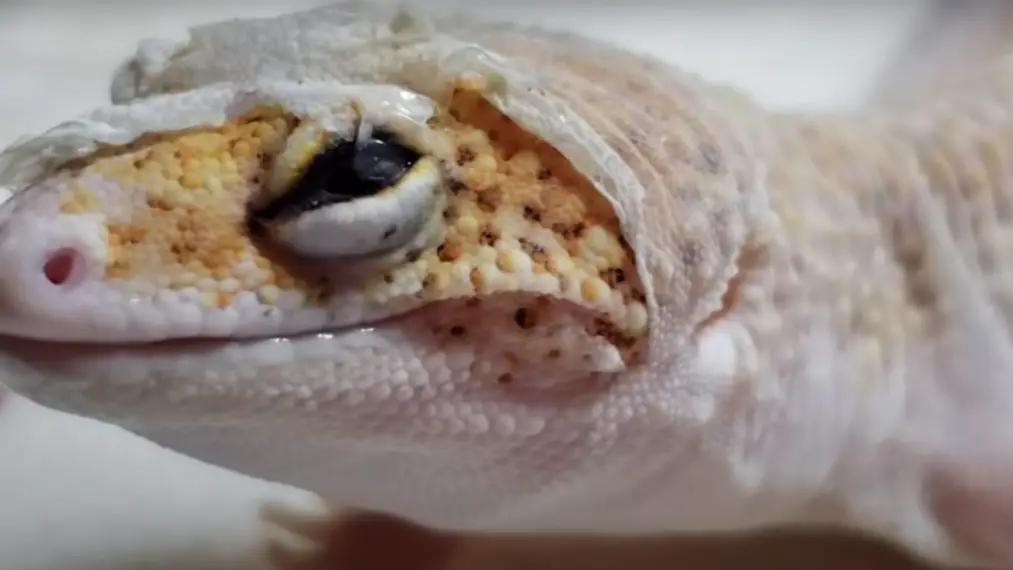
The good news is that you don’t need to do anything in this situation than to leave the gecko alone without disturbance. Shedding will only take a few hours to a day, and all shall be well after that.
Bullying and competition
Geckos are solitary animals. In the event they get housed together, they could easily bully each other. It is even worse if two males are placed in the same habitat. They will be in constant conflict over territory grounds.
When babies are put in not large enough habitat, they will naturally be looking for food always. The bigger baby in body size will pick on the smaller sized gecko for food and living space. This will be a mental stressor for the small one.
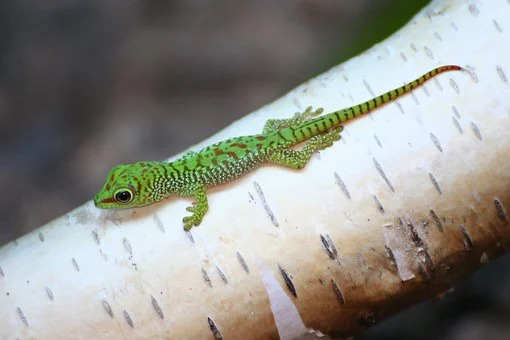
Due to competition, smaller geckos will undoubtedly miss out on food. This will leave them stressed and malnourished.
It is thus for your interest and the gecko’s interest to have each in their habitat.
Very bright lighting
It is common for geckos to only come out of their hiding in the evenings and early morning (dusk and dawn). Therefore, they do not need blight light in their enclosures.
Proper feeding of the gecko plus light from a nearby sunny window will be sufficient for a gecko’s survival.
However, if you have to provide lighting, use only UVB lights, not exceeding 5%. You should not use fluorescent lights or UVB that is more than 5% since they will cause pain to the gecko’s eyes and disrupt the reptile photoperiod.
Conclusion
There are varied signs and reasons why your gecko could be stressed. It is upon you as a pet owner to take interest and master how to gecko behaves optimally to be sure you will pick any behavior variation.
Be keen to monitor any changes made to the gecko’s environment. This will help you reverse or withdraw any stressor sooner.

